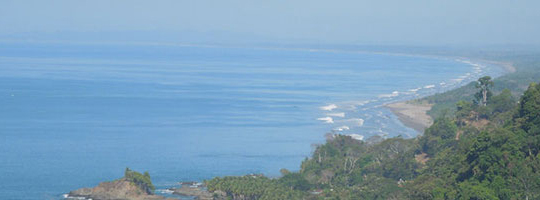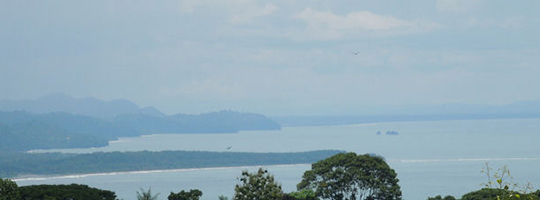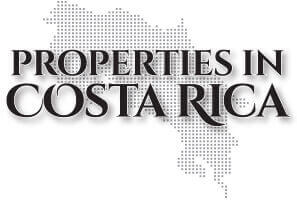Find Great Value in the Southern Zone
December 6, 2013
Properties in Costa Rica
Costa Rica’s Southern Zone has been drawing a lot of attention recently. This is hardly a surprise considering its natural beauty is unparalleled and prices of property are very much within reach. International Living Magazine says this is the place where you can find “ocean views that won’t break the bank.” Despite a growing interest from buyers and agents there are still amazing homes and properties available at excellent prices. According to International Living the prices for ocean view homes in the Southern Zone (starting at $150,000) are one quarter the price one would pay for a similar property in Southern California. But even if we look at prices of comparable properties in other parts of Costa Rica, the Southern Zone is still a bargain by comparison. Homes in the region are still a fraction of the price of similar homes in the very popular Guanacaste region.


With all the attention that the area has been receiving lately, is it possible that we are on the brink of a boom? Is the Southern Zone the “new” Guanacaste? While we can definitely expect a steady increase in prices as more attention, amenities and comforts arrive to the area, there are a lot of factors to counterbalance this. First, there is a tremendous amount of protected acreage. But second, there is the simple fact that it’s the views and nature in all its simplicity that draws people to the region. It is precisely the lack of sprawling resorts and condominium high rises that attract potential buyers to the area. We probably won’t be seeing large-scale disruptive development, or huge condo complexes anytime soon. But if you haven’t thought about the Southern Zone, you should probably start paying attention to the region. Property values are surely on the rise.
If economic factors are not motivation enough, you get so much more than just value in the Southern Zone. The area is home to 3% of the world’s species. Here, you’ll find more acres of preserved land than in all of Costa Rica. Ballena National Marine Park is great for spotting humpback whales (giving rise to the nick-name “Ballena (Whale) Coast”). The landscape is postcard perfection with expanses of lowland rainforests and green mountains that melt into the seascape. The new coastal highway makes it an easy three-hour trip by car from San Jose. You’ll also find a growing population of expatriates who have brought with them new restaurants and a variety of international dining options. For someone looking to connect with nature and get back to the real, unspoiled Costa Rica, the Southern Zone is the perfect place.
If you are interested in exploring this beautiful region, Joshua Kanter is one of our Properties in Costa Rica’s best resources for finding a home in the Southern Zone and was recommended in International Living’s article. He lives full-time in Dominical and knows the ins and outs of finding the perfect property in the area.
Contact us for assistance and to view any of our listings






 Here’s the progression… you visit the southern Pacific zone of Costa Rica, you fall in love with the southern Pacific zone of Costa Rica, you eventually
Here’s the progression… you visit the southern Pacific zone of Costa Rica, you fall in love with the southern Pacific zone of Costa Rica, you eventually  The world we live in today is streaming with Positive ions. But this saturation of positive ions due to the ever developing electronics in our homes and offices, the radiation we are exposed to on a daily basis and the chemical and pollution our bodies come in contact with, is actually not a positive thing. This abundance of positive ions contributes to an imbalance of the acid-alkaline levels within our bodies, thus contributing to free radicals which are believed to advance aging and the development of cancer.
The world we live in today is streaming with Positive ions. But this saturation of positive ions due to the ever developing electronics in our homes and offices, the radiation we are exposed to on a daily basis and the chemical and pollution our bodies come in contact with, is actually not a positive thing. This abundance of positive ions contributes to an imbalance of the acid-alkaline levels within our bodies, thus contributing to free radicals which are believed to advance aging and the development of cancer.